
|
|
SUBSIM: The Web's #1 resource for all submarine & naval simulations since 1997
 |
SUBSIM: The Web's #1 resource for all submarine & naval simulations since 1997 |
 05-04-16, 06:32 PM
05-04-16, 06:32 PM
|
#4441 |
|
Lucky Jack
 |
Welcome to 1916!
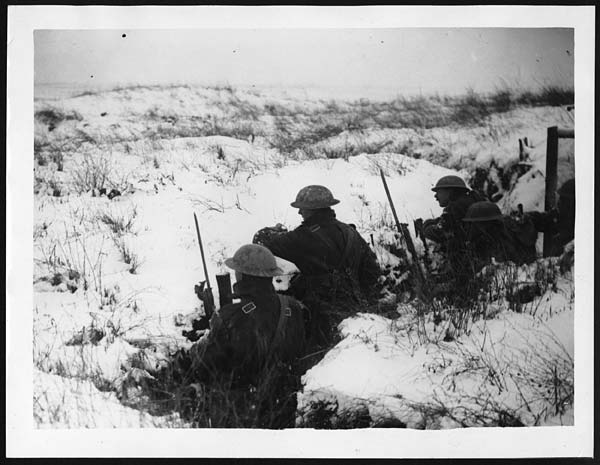 The war rumbles on, with small gains and losses in the west, large but faltering German advances in the east, and relative stale-mate in the Middle East.  First, the current casualties, and just two years into the war and Germany is already exceeded OTL levels of carnage. Russia has taken a battering, but is holding firm, managing to roll back German advances north of Riga. Currently it looks as though Germany is trying to push the southern Russian front, but progress does seem to be slow. Meanwhile on the Western front, a disasterous winter offensive saw the UK fail to liberate Luxembourg, and so it was decided to dig in and wait for summer. Meanwhile the French have pushed the Germans out of their territory and are now pushing across the border into Metz. In the Middle East the Senussi attacks caught the British off guard, in their moments of triumph in pushing the Ottomans out of the Sinai they were forced to halt, retreat back to the Suez and send forces to Western Egypt to deal with the Senussi, in late November, with the Senussi suing for peace, the focus returned to the Ottomans with the potential for a summer offensive once the current Ottoman assault is easily repulsed.  In regards to naval forces, the Royal Navy has been both successful and devastatingly unlucky with the German High Seas Fleet occasionally catching small convoy raider groups and dispatching them quickly before the Grand Fleet can arrive to even the odds. By this way most of the Queen Elizabeth class battleships have been lost, with only HMS Malaya and HMS Agincourt still in service. The keels of five more Queen Elizabeth class battleships have been laid down and they are expected to be ready by 1919. The operational plan for 1916 is to continue to harass the enemy at sea, denying their supply routes wherever possible, push the Ottomans out of Egypt and link up with our British Raj allies who have come through southern Persia to invade the Ottomans from the east, and if the opportunity presents itself on the Western front, assist the French in pushing back the German force. |

|

|
 05-05-16, 02:11 AM
05-05-16, 02:11 AM
|
#4442 |
|
Lucky Jack
 |
 Flame farts! Wooo! |

|

|
 05-05-16, 04:48 AM
05-05-16, 04:48 AM
|
#4443 |
|
Lucky Jack
 |
Dangerous levels of Gud detected, expelling excess Gud.

|

|

|
 05-05-16, 04:58 AM
05-05-16, 04:58 AM
|
#4444 |
|
Lucky Jack
 |
More like expelling excess "I could strangle a fluffy kitten" levels of frustration.
You have not experienced Hell in gaming until you've experienced Blighttown for the first time in Dark Souls. |

|

|
 05-05-16, 06:27 AM
05-05-16, 06:27 AM
|
#4445 |
|
Captain
 Join Date: Mar 2005
Posts: 541
Downloads: 50
Uploads: 0
|

__________________

|

|

|
 05-06-16, 06:34 PM
05-06-16, 06:34 PM
|
#4446 |
|
Lucky Jack
 |
January 1917
 1916 was a year of hard fought victories, with the tide definitely turning in both the western and Middle eastern fronts. However war exhaustion is beginning to hit home hard for both the Triple Ententé and the Central Powers. Bulgaria signed an armistace with French ambassadors late in the year, while Russia has been rocked by mass strikes and protests, as has Australia. Great Britain has seen mounting discontent which flaired up most in Ireland where Michael Collins and his rebels forced the quick transfer of a small number of troops to the eastern coast of the emerald isle. Experts studying the casualty rates are wondering how Germany is still able to continue fighting, with French forces on the western bank of the Rhine it is thought that 1917 will be the year which will make or break the war, with rumours of a top secret weapon being developed for the army... Meanwhile in the Middle East, rebellion is being formented amongst those once oppressed by the Ottoman Empire, with the Arabs rising up to overthrow their former Turkish masters and drive them out of Mecca and Medina. To aid these brave men to establish their great Arab Empire we have sent supplies and a military advisor in the shape of one T.E. Lawrence. We look forward to seeing them in action alongside us as we drive the Ottomans out of Tel Aviv and advance into Palestine.  Over 5% of the pre-war population of Germany have been killed in this war, and some 3-4% of the British pre-war population have died, in France there are few villages who have not lost someone in the fields of western Germany.  It's becoming harder for the Royal Navy to find German ships to sink, a new building program of H and J class submarines which completed at the end of 1916 will only bring more misery to the navies of the Central Powers as their convoys are decimated. This is not to say that the British have had it all their own way, however since the disaster that befell the Queen Elizabeth class warships after the Battle of Kattegat, there have been no major skirmishes with the German navy. Last edited by Oberon; 05-06-16 at 06:43 PM. |

|

|
 05-07-16, 04:48 PM
05-07-16, 04:48 PM
|
#4447 |
|
Lucky Jack
 |
January 1918
 1917 would be remembered as the year of collapses, with the Great War having bled white many of the major players in the theatre. The first to fall was the Russian Empire, but it did not all go at once, and it did not go alone. First, the Tsar sought refuge in the west, he was rebuffed by France who feared that his presence would inspire revolutionaries in their midst, but Great Britain, despite its own problems in Ireland which would continue to flare up as the year proceeded, took in Cousin Nicky after receiving a coded telegram from Petrograd:  With the Tsar gone, the Russian army went on a renewed and more powerful offensive, following the example of the French and British forces who were powering into Germany. For a time it looked as if soon the Russians would link up with the French and British somewhere in the middle of southern Germany.   Then came two actions which would change the war and perhaps propell a third action which would change the world. In April 1917 after much deliberating in Congress, the United States of America declared war on the Central Powers, with most of Southern America (with the exception of Mexico which was still recovering from its Revolutionary wars) following suit shortly after. In late August/early September, the Austrio-Hungarian Empire sued for a white peace with France and was granted it, having been heavily overrun by a renewed Russian offensive. Within a month, the Austro-Hungarian Empire was dead, split into several new states such as Czechoslovakia, Hungary, Austria and the Kingdom of Serbs, Croats and Slovenians. Then came the third shock as the Russian provisional government was overthrown in a second revolution in November, with a new Communist state being created led by Vladimir Lenin. It wasted no time in purging its armed forces, creating vast gaps on the eastern front which the German forces have so far been only barely able to exploit due to their catastrophically low manpower. Smelling a chance to possibly end the war quickly and avoid further bloodshed, Britain launched an ambituous scheme, it siphoned away two small armies from the west German front where they boarded ships at Dieppe before joining up with the Grand Fleet and heading for Rostov and from there...Berlin! The attack on Rostov is often quoted by historians as being Britains biggest blunder of the Great War, with many reasons given for its failure, poor supply lines, inadequate troop numbers, or just poor leadership, whatever the cause a great number of British bodies lay dead on the German coastline that week and the Grand Fleet returned to Scapa Flow and the survivors back to France where they would slowly return to the front line, and the war would drag on into another bloody year.  Wounded soldiers, some still in desert gear having been hastily transferred from forces on the Palestine front, climb onto a hospital ship off the coast of Germany following the failed Rostov assault.  Analysts are astonished at how Germany is still able to fight despite having suffered so many casualties, the collapse of the Russian and Austrio-Hungarian empires have shown the path down which such massive casualties can lead...but Germany still continues to fight. Meanwhile the Ottoman Empire is steadily being pushed back, with British forces having taken Tel Aviv, Jerusalem and Damascus in short order during 1917. Meanwhile in England, some experimental units are being equipped with a large motorised creation dubbed an 'armoured track layer'. So far it has shown that is extremely efficient at getting stuck in trenches, mud, hedgerows, sand dunes, bridges, and small gulleys, and it has also displayed an incredible skill at mechanical failures at the most inopportune of moments. Despite these incredible advances, the units will probably not be ready until early 1918.  On the naval front it has been extremely quiet, it is estimated that either Germany has little to no convoy activity left, or it has gotten very good at hiding them. Likewise attacks on British convoys have also tailed off, with the rapid movement of French and British forces into western Germany it is estimated that production has shifted from naval warfare to land warfare. The relatively quiet skies above the German front would also lend weight to this theory. |

|

|
 05-07-16, 08:40 PM
05-07-16, 08:40 PM
|
#4448 |
|
Lucky Jack
 |
October 1918
 1918, the year of peace. The Soviet Union now faced opposition from both at home and abroad, as infighting begins in what would become the Russian civil war, with two large adversaries arrayed against them, the Soviet government first refused a generous peace offer from Germany...and then in desperation signed a more stringent one. The nation of Finland sprang into being from the treaty of Brest-Litvosk, as the Soviet Union left the war to fight its own battle for survival.  (dat compression) With the Soviet Union out of the fight, and the USA seemingly missing, it was down to France, Australia, Canada, Belgium and Great Britain to continue the fight, although in fairness to the Americas, nations from South America were spotted in western Germany in 1918. In April 1918 the first of the armoured goliaths crashed through the German lines at the Sixth Battle of Liege, although many of these craft (now referred to as tanks due to their boxy shape reminding troops of water storage tanks, not to mention their habit of collecting rain-water in all the wrong places) broke down whilst attacking the German lines, enough got through to give the Germans a shock, a shock that they did not recover from until the Fourth Battle of Aachen a month later when most of the tanks failed to even reach the German lines and had to be abandoned during the counterattack.   No 'tanks' were lost to the enemy in the Sixth Battle of Liege, but more than a few were lost to the terrain. At this point the writing was fairly clearly on the wall for Imperial Germany, as the summer months rolled around, desperate attempts were undertaken by the German forces to halt the advance of the Triple Ententé. However it was all for naught, when British forces captured the docks at Wilhelmshaven, it must have been the final demoralising blow to the Kaiser who had lost his namesake city to the enemy. In early October, diplomats from Germany arrived in Paris seeking an end to hostilities, and on the 24th October 1918 the guns across the Western front fell silent after four long bloody years. The cost of the war was catastrophic for nearly all it touched, but few more so than Germany, the Soviet Union and France.    Authors note: Wowie, ouch...that casualty rate for Germany! I didn't think that it was possible to make WWI even more bloody than OTL...but it seems I was wrong, and yet Germany didn't even manage to advance as far into Belgium and France as OTL. I just hope I can persuade France not to go all Versailles on Germany, lest a certain mustached Corporal appear in a couple of decades.  |

|

|
 05-14-16, 02:44 AM
05-14-16, 02:44 AM
|
#4449 |
|
Starte das Auto
|
@ Mud: love that frigate... presume that's World of Warships again?
__________________

|

|

|
 05-14-16, 03:30 AM
05-14-16, 03:30 AM
|
#4450 |
|
Rear Admiral
 |

__________________

|

|

|
 05-15-16, 12:14 PM
05-15-16, 12:14 PM
|
#4451 |
|
Starte das Auto
|
   
__________________

|

|

|
 05-15-16, 12:23 PM
05-15-16, 12:23 PM
|
#4452 |
|
Starte das Auto
|
  FS9 with freeware Pfalz and VFR photo scenery  FS9 plus 'First Class Simulations' F-22 and VFR Netherlands scenery  FS9 plus 'Just Flight' Spitfire Mk1 and VFR scenery 
__________________

Last edited by Eichhörnchen; 05-15-16 at 04:04 PM. |

|

|
 05-16-16, 11:14 PM
05-16-16, 11:14 PM
|
#4453 |
|
The Old Man
 Join Date: Oct 2005
Location: 51.557, -0.102
Posts: 1,311
Downloads: 174
Uploads: 0
|
Soviet Luna 3 replica in Kerbal Space Program

|

|

|
 05-21-16, 09:18 PM
05-21-16, 09:18 PM
|
#4454 |
|
Lucky Jack
 |
The 1920s, a decade of revolution.
 By 1919 Europe was exhausted, with most of the major powers either collapsing or close to collapse. Of these major powers perhaps the worst effected were Germany, Austria-Hungary and Russia, one had suffered a socialist revolution, the other had disintergrated and the last was wracked with civil disorder and chaos. Yet just because the guns had fallen silent in the fields of western Germany it did not mean that the soldiers of the Triple Entente could see peace at last, for no sooner had the ink dried on the Treaty of Versailles, when conflict broke out between the Ottoman Empire and Greece. So France and Britain found themselves once again trudging through the sands of the sick man of Europe as he underwent his death throes.  Soon it was all over, and what land the Greeks did not claim went to the French and the Ottoman Empire was no more. With peace finally at hand, Britain begun to look towards the future of warfare in order to maintain its security in a changing world. While Kaiser Wilhelm II fled Germany during a populist uprising, bringing into power the Weimar Republic, Britain began construction on its first aircraft carrier. While the Soviet Union fought its civil war, the Royal Navy began a crash course in destroyer and anti-submarine warfare construction, aware of the effect that Royal Navy submarines had had on Germany during the Great War and equally perilously aware of its vulnerable position as an island heavily dependent on foreign supplies. These were hard times for Germany, but not as hard as they could have been as the French diplomats were keen to point out, while Germany still had to pay reperations to France and Britain for its role in the Great War (the so-called 'Victors Retribution') it did not have to give up any land in mainland Europe, and so while the Austria-Hungarian Empire collapsed into a series of smaller states, Germany stayed whole, stretching from France to the Soviet Union. Many vocal opponents in Paris decried the softness of the Treaty of Versailles and Field Marshall Foch was heard to mutter 'This is not a peace, it is an armistace for twenty years', as, although France would occupy the Rhineland as payment for missed reparations twice in the 1920s, they were otherwise prohibited from taking the industrial heartland of Germany from it.  Things were not exactly docile in the United Kingdom either, the after effects of the 1916 Easter Uprising and the struggles that followed came to head in 1921 after negotiations with representatives from the Irish side fell through, and the Irish declared themselves independent from the crown. Their timing could not have been worse, British forces had gained plenty of experience fighting battles in Europe, and their weaponry was honed from this experience. Armoured Cars, Tanks and the new batallion of Royal Marines landed in Dublin and swept through the countryside. Other nations joined in Britains defence, with Greek forces returning the favour that Britain and France had given them against the Ottomans. Within a year it was all over and the dreams of Irish independence were crushed...for now... 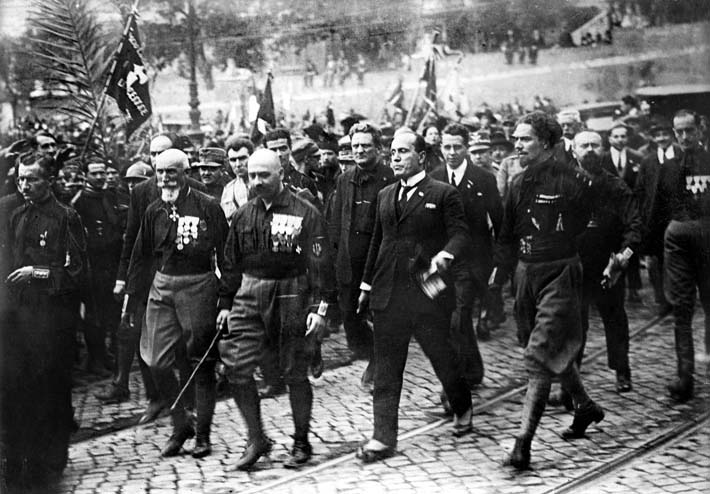 Meanwhile in Italy a curious new form of government arose declaring itself as 'fascism', lead by a strange short man called Benito Mussolini, it sort to strike back against the communist and socialist wave which had tried to spread across Europe in the aftermath of the Russian revolution, however fascism was slow to take foot in the rest of Europe...for now. Then came the most dramatic event of the 1920s...the Crash. 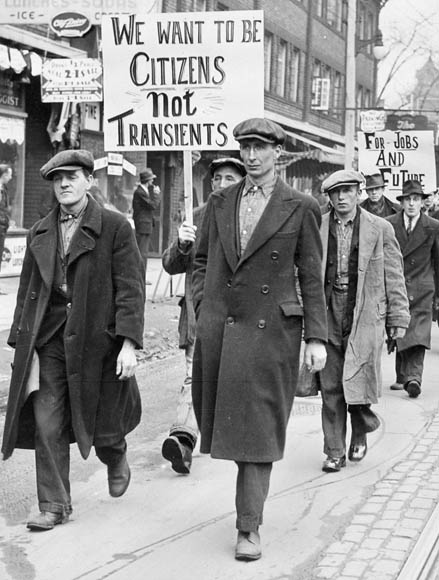 Suddenly Britain found itself in the middle of a major crisis as unemployment soared and national unrest soared with it. As 1929 drew to a close, the government faced major financial trouble, despite its best attempts to mitigate the worst of the Crash from the workers, it could not be everywhere and factories were forced to close and people marched. The 1930s would prove to be a difficult time for Europe... 
Last edited by Oberon; 05-22-16 at 06:32 AM. |

|

|
 05-26-16, 05:48 PM
05-26-16, 05:48 PM
|
#4455 |
|
Lucky Jack
 |
1930s - The World Turned Upside Down
 Matilda tanks in London as unrest spreads throughout the Home counties The 1930s would prove to be some of the most turbulent years in Great Britains modern history, and would come perilously close to destroying the empire completely.  The Great Depression hit the United Kingdom particularly hard, with bank runs and civil unrest causing mass uprisings at home and abroad. Several peoples took this opportunity, this weakness, to try and secede from the empire, Malta started the ball rolling, while in Europe the war between Austria and Czechoslovakia, Romania and Hungary finally ended after several years as Czechoslovakia annexed Austria.  Soon other nations were following suit, British Guyana declared independence, as did Rhodesia, and Gibraltar dissolved into anarchy. 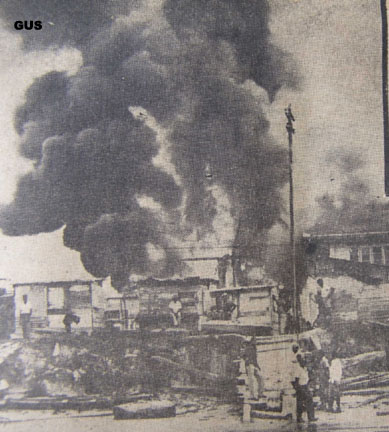 Although Rhodesia and Malta were returned to the empire, and eventually Gibraltar returned to the fold, Guiana was allowed to continue its independence as it was not deemed strategically valuable enough. Likewise other far flung locations were left to their own devices during the 1930s, with anarchists establishing brief fiefdoms and communes being established while the formerly mighty empire sought to prevent its own government from collapsing. With the economy in shambles, the fascist ideals of Italy spread into Europe, with the German Workers Party gaining a majority in the 1933 German federal elections and a mustachioed man called Adolf Hitler becoming the Chancellor of Germany. Almost immediately he sought an alliance with Great Britain, and for a time the British public contemplated a great European Union of France, Great Britain and Germany to band together in these rough economic times and protect against encroaching socialist revolutionaries from the Soviet Union.  However, this new leader would prove to have a more sinister side, which was quickly recognised by France who refused to have anything to do with this man and his anti-semetic ravings and left the alliance. Britain held on a little longer, but when mass anti-semetic attacks began spreading unchecked in Germany, Britain decided that it could not be allied to such a radical nation and it too left the alliance. Curiously the Hellenic Republic and Belgium did not, and thus they remained members of this 'Axis'. Efforts were made to rekindle an alliance with France, but while the independence of the country was guaranteed, Paris refused to be drawn into another web of alliances which caused so much death and destruction in the Great War.  Meanwhile in the Far East, the Imperial nation of Japan sought to carve its own destiny in China, first taking Manchuria, and then after an incident at the Marco Polo bridge, striking into Nationalist China, with reports of fearsome atrocities carried out against the Chinese. Hong Kong, meanwhile, was lost to partisans, so the British had no real means in which to monitor the situation and were more concerned with trying to keep their nation afloat than the actions of an Empire on the other side of the globe. However, events closer to home were about to bring the British into a new war, as the struggle between Fascism and socialism broke out into war in 1936 in Spain.  The war in Spain began after a group of generals lead by José Sanjurjo delivered a proclamation against the left-leaning Spanish government of President Manuel Azaña and with support from other conservative groups declared war on the Second Spanish Republic. Volunteers and materials were shipped in for both sides from Italy, Germany and Great Britain, with France being most noticable by her absense. British advisors were sent to Spain to help co-ordinate the Republican armed forces, and soon these were giving advice near the frontlines. Following attacks on merchant shipping in the Mediterranean Sea, it was decided by the British parliament that action was needed to bring the war in Spain to a speedy conclusion, and thus Britain declared war on the Nationalist rebels, landing forces in Galicia.  A quick campaign was waged across the North of Spain, with the army of General Franco being destroyed late in mid-1937 after being encircled in Gerona.  From here it was a quick dash down the eastern coast and into Malaga and Gibraltar. With the Royal Marines of 45 Commando repeating the offensive which earned them their old battle honours by retaking the rock from Nationalist forces who had dislodged the partisans which had taken root there earlier in the decade.   British forces would remain in Spain for the rest of the 1930s, helping the Republican government to rebuild after the brief but devastating civil war, and acting as a protectorate of parts of the nation. As 1939 rolled around, some people were predicting war with Nazi Germany, however despite minor political altercations over the German remilitarisation of the Rhineland and disagreements over the case of the Czech Sudetenland, nothing of note occurred at the end of the 1930s. Technologically wise, the British Empire continues to dominate in many areas, with the invention of the long range seeing device called RADAR, which has been fitted to most naval vessels in order to aid them in locating and attacking the enemy. James Chadwick continues his research into the structure of the atom and its power, and meanwhile on the outskirts of Sheffield in a closely guarded military base, strange roaring noises have been heard preceding a streak of light sometimes launching into the sky...but more often just flashing and exploding on the ground. 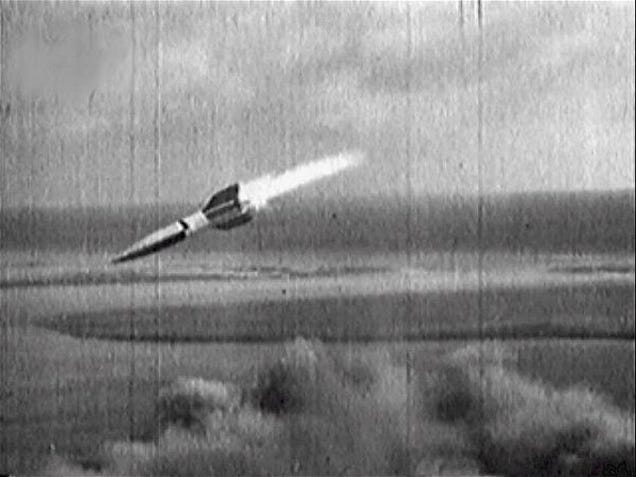 Who knows what the 1940s will bring? However, with Germany rising in power and its ideology hell-bent on a showdown with the Soviet Union it may only be a matter of time before the two giants slug it out for dominance. And what of Japan? Will they be content with their slice of China, or will more of Asia come to feel the wrath of the Rising Sun? And most importantly...why on Earth are Atomic Physics needed to research Modern Carrier Pigeons?  Only time will tell! 
|

|

|
 |
|
|
